Peking University, November 27, 2020: Hidden among the beautiful and traditional architecture of Peking University lies humble-looking corners filled with precious and pleasant riches of knowledge, enveloped with row after row of neatly lined up books towering towards the tall ceiling.
These mysterious hidden corners of Peking University are in fact the study rooms of generations and generations of Peking University scholars and professors. Here, we invite you to explore with us various study rooms on PKU campus. Embark on this journey with us and you'll be given insights into some of the most brilliant minds of PKU as you hear them share stories of their study rooms- the place where all the magic happens.
Today let's go to professor of Politics Xu Xianglin's study room.
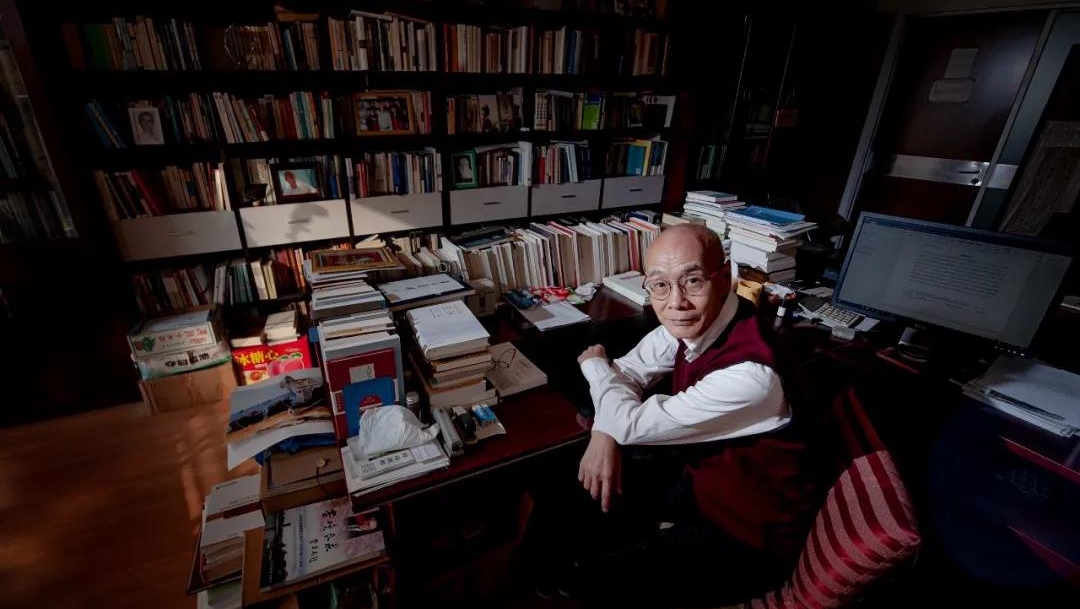
Xu Xianglin
School of Government, Peking University
Xu Xianglin is a political scholar and professor at the School of Government, Peking University. Xu studied International Politics at PKU School of International Studies and later earned his Ph.D at University of California, Irvine. He is the Director of Peking University Institute of State Governance Studies.
Walking into Professor Xu Xianglin's study room is like walking into a sea of books – a full wall of wooden bookshelves lined with rows and rows of books. When asked about his ideal study room, he replies "my study room".
Not just books – a whole new world in Prof Xu's study room
Most of Professor Xu's books are arranged in chronological order and divided into three types: for teaching, for academic writing and informative documents. Ease of accessibility is extremely important for Professor Xu — it doesn't matter if it seems cluttered to outsiders as it is arranged just the way he likes it.
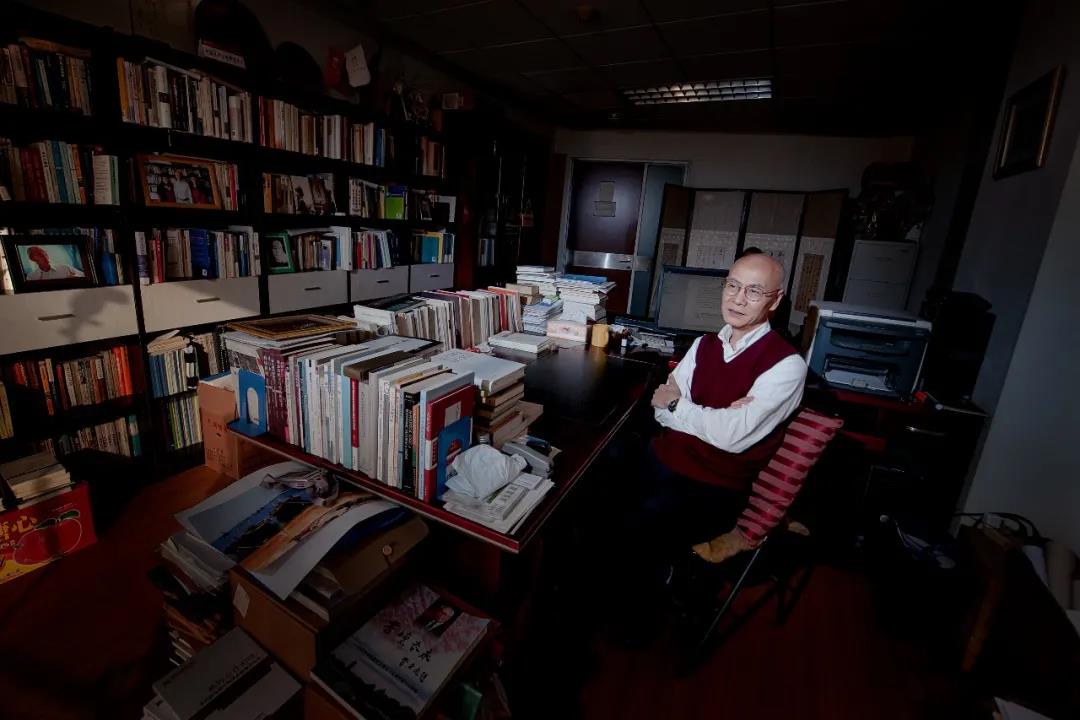
This factor is also reflected in the design of his bookshelves — he prefers an open-concept than one with glass panels. This shortens the physical and mental distance between Professor Xu and the books. He explains that "a study room has to have that atmosphere that eases you into reading."
Apart from the bookshelves, his desk is also another spot where you can spot his collection of books. They are arranged into two broad categories: the ones needed anytime for teaching and writing research papers and another for newer books that he hasn't found a way to sort. On a couple of occasions, there may be a few books scattered on his table at once but it nonetheless sparks joy in him. He believes that "this sort of messiness does not make you irritated, in fact I find order in it".
Professor Xu's study room isn't just filled with books but also lots of memorabilia, including photos by him, a plaster statue of David and small handicrafts he has collected from all over the world. It may seem like a small wine bottle to anyone, but to him, "as long as it feels retro, I'll like it a lot".
Professor Xu is certain that books should not be seen as decorations and a study room should have more than books. While books are viewed as rational, he believes that we need a bit of the emotional aspect in our lives as well to give us some inspiration. "We should live with books, but we should not only live with them," he said.
A must-read book for everyone: the Society
There are plenty of pictures in Professor Xu's study room – he started taking pictures when he wanted to capture some memories of his son as a child and has fallen in love with photography ever since. He bought his first digital camera in Japan back in 2002 and has since been recording the bits and pieces of life on film.
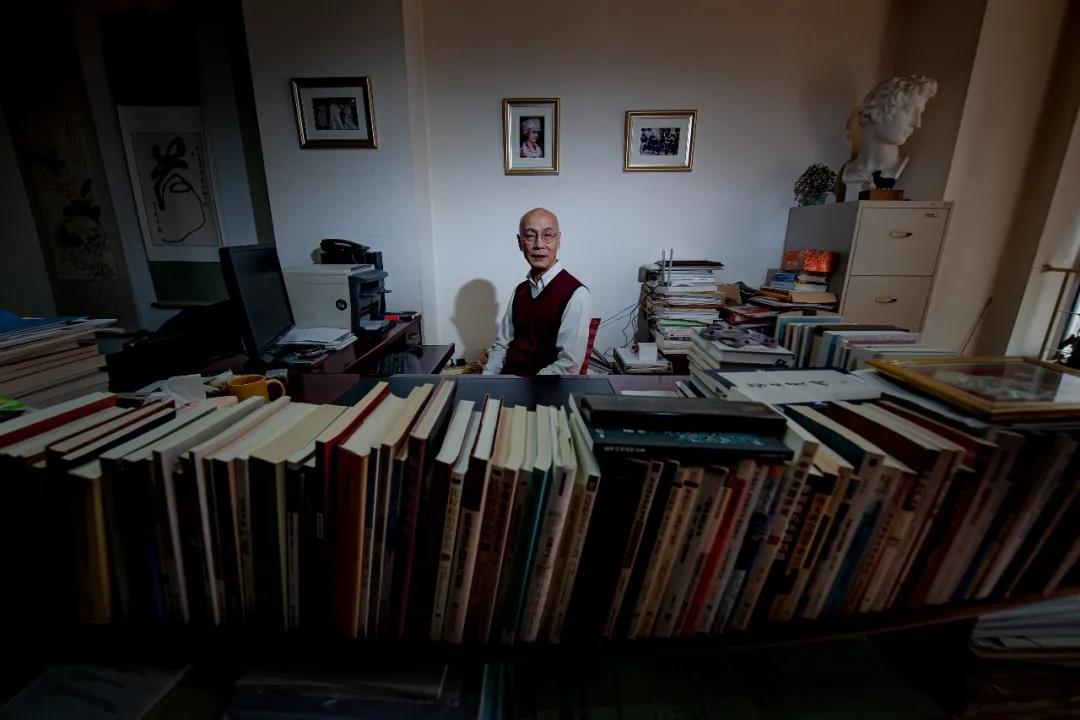
It started off as a hobby but he grew to realize that photography was a means to observe society and decided to record these down. To him, photography requires a unique perspective and theme and this is similar to observing the society.
Professor Xu is one who is rooted to the ground and believes that while theory is important in aiding us grasp patterns, it lacks the complexity found in reality. Hence, he is of the opinion that social science scholars should step out of the ivory tower and conduct fieldwork to understand how people actually feel. Even though Professor Xu's study room is so comfortable, he does not like spending too much time inside and instead likes travelling to various villages and townships to speak with various groups of people. With these primary information, he would then work on his theories back in his study room.
Professor Xu feels that "photos need to convey a story" and his works truly reflect this belief. Professor Xu says that there has to be constant breakthrough in photography and one should "never think that what you observe is the entire world". At the same time, he understands that photography is ultimately creative work and it is thus inevitable that our personal values are brought into it. "For example, when framing a picture, we have the tendency to minimize the 'extra' portions in order to highlight the theme. Similarly, this can also be found in social sciences hence there is a need to be on the constant lookout for theories that we deem to be the truth."
Having done loads of fieldwork research, Professor Xu is highly adept at holding open, friendly conversations with people from all walks of life. Not only is this a matter of EQ, it is also related to one's breadth of life experiences and this truly underscores the Chinese idiom of "读万卷书,不如行万里路" (It is better to travel ten thousand miles than to read ten thousand books).
Finding the "warmth" in reading
Even after having studied in the United States, Professor Xu is still most passionate about Chinese politics. He believes that this is due to a combination of humanism as well as the "academic pursuit of analyzing Chinese issues from a Chinese perspective".
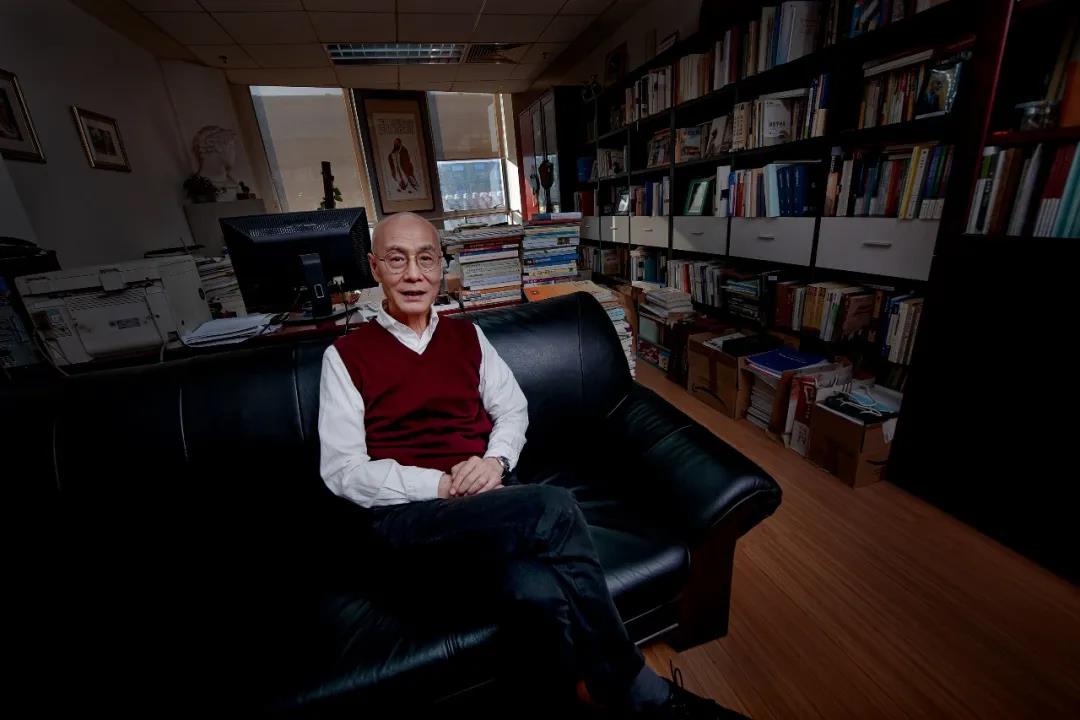
When he was still schooling, Professor Xu was an avid fan of reading literary works from French and Russian realist authors. Initially, he applied to study Chinese in PKU but he was rejected so he stumbled into politics. With this turn of events and his own fateful experiences, Professor Xu developed a novel understanding of what it means to be "rational".
"Realism is definitely about focusing on theory and thoughts and it aids us in understanding deeper issues. However, being too rational can cause us to miss certain aspects in life. After all, society needs a balance and solely relying on our rational side may cause us to trip up at times; the emotional aspect is equally important as well."
Professor Xu received very rigorous academic training in the US and he is extremely careful with the choice of words. Yet, being someone who constantly seeks breakthrough, Professor Xu soon felt that it was restricting and yearned to "break free from the shambles that this rigorous training imposed".
Humanities, after all, is about inspiration and sometimes the dots simply connect and spark off that Eureka moment. Professor Xu does not want to be bounded by a single discipline and is constantly reading and doing self-reflection.
Even though his main field of research is politics, he remains inquisitive about history, economics, sociology and even technology. Yet, he is wary that our "subjective consciousness may mislead us in observing issues as what we deem as objective may not be truly so". Professor Xu reads critically and this has been his attitude towards reading and research alike.
In search for the truth
When asked about the book that has impacted him the most, Professor Xu laughs and says that one is constantly being shaped and reshaped by life experiences. However, he did share with us a book that he likes a lot— "White Deer Plain" (白鹿原) by Chinese author Chen Zhongshi. This soul-searching book changed his perspectives on contemporary issues in China and allowed him to take a closer look at history and culture.
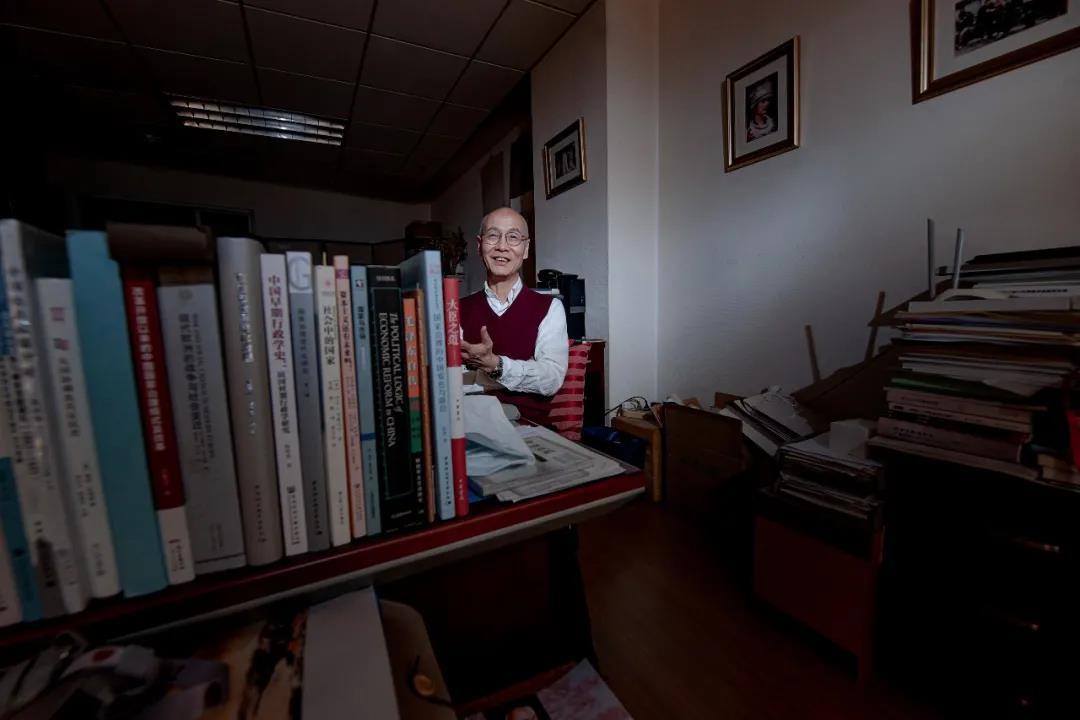
Initially, Professor Xu taught a module on Western Political Thought and hence the books that impacted him the most back then were mostly from Rousseau. True to his name of "The Father of Romanticism", Rousseau's work was rather idealistic. After going to US to study political science, Professor Xu learnt a lot on institutionalism, rational choice and other theories but "found that these theories were different from the reality in China." As he delved deeper in localized research, it was "White Deer Plain" that gave him the inspiration to explore the rich history and culture of China.
What's useless may indeed be useful
"There are a multitude of books on sale today but I've always felt that some of them are not of much value. In order to determine whether a book is of value, you have to quickly ascertain the quality of this book and if it is relevant to you." Professor Xu's advice in terms of choosing a book is to search for books with a purpose and to classify them into various levels.
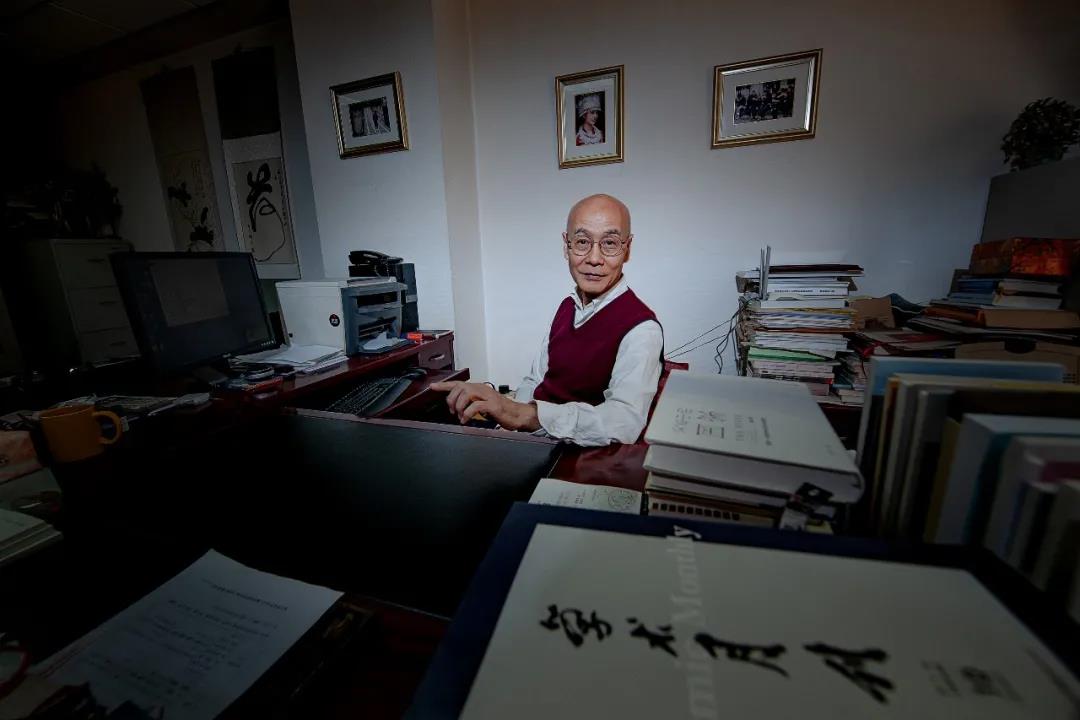
During undergraduate studies, he suggests that students should work on building a solid foundation and to constantly interact with teachers and peers in order to find out where your weaknesses lie. For post-graduate students, they should relook at their study plans and to focus on a particular topic when looking for books so that they can fuse it with their research.
Apart from academic research, he believes that reading should be of quality. Books can be used to de-stress and to reset the pace of life. On the other hand, while it is good to broaden one's horizons, there has to be a limit in doing so as most books are of limited value. Instead, he advises students to choose good books and to read them wisely by finding those that match your experiences and interests.
The value of reading comes in building a database of knowledge that you can utilize when necessary. "Sometimes you'll get sudden bursts of thoughts relating to something you read two years ago. You may not recall the exact content but you would know its rough outline. This is where you rediscover the significance of this book. And I guess, such is the process of reading."
Written by: Ng Joong Hwee
Edited by: Amanda Hu, Pu Hairui
Photo credit to: Lv Chen